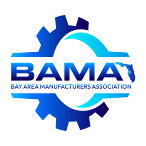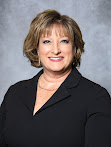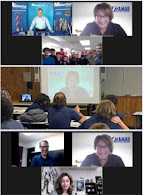“Manufacturing Month 2021-Great Manufacturing Teach-In”
Each of the 12 manufacturers provided a 5-7 minute pre-recorded video tour
of their facilities which was available for students to review on-demand to learn
about each company and the world of manufacturing. The virtual tours included
live video walk-throughs allowing students, teachers, and guests to look at
features in detail without having to be on-site. Click on the links below for information on each company.
·
Pinellas County Manufacturers:
o
Custom Manufacturing and Engineering-CME
o
Molex
o
Monin
o
Omnicell
·
Hillsborough County Manufacturers:
o Electromechanical Solutions (EMS)
On the day of the Great MFG Day Teach-In, at the top of each hour throughout the school day, students and teachers could log-in to a 10-minute virtual session with a company. The session started with an introduction of BAMA, what manufacturing is and how it supports the economic development in the Tampa Bay region, then moving on to specifics about each manufacturing company’s products, services, and details of many different fun and well-paid tech jobs. In this interactive Q & A session, students were able to ask about manufacturing processes, how things are made, job opportunities, education/certifications/skills required, salary range, and many other interesting questions.
Student quotes from the Great MFG Day Teach-In:
· “Thank you for this experience. I learned about tech jobs I did not know existed and thought it was cool to see STEM in the real world.”
· Thank you for this experience! I learned so much about different jobs in STEM fields!
· “This field trip was really valuable. It was interesting to hear about local STEM opportunities.”
· “I appreciate BAMA doing this for students so we can see how diverse STEM opportunities are right here in our area.”
· “This virtual field trip showed me some career options that don’t require college but still provide a good income.”
· “This virtual field trip was valuable because it introduced us to real world opportunities right here where we live. Thank you!”
· “I learned so much about jobs in manufacturing and technology. Some don’t even require college but pay really well.”
· “Thank you, BAMA! It was really cool to take this virtual field trip and have an interactive learning experience without having to travel.”
· “Thank you for giving us this manufacturing day experience. It is hard to pinpoint what was best because there was so much!”
· “With Covid we haven’t taken many field trips. I liked that BAMA came to us and that it was interactive and local.”
For information on the FLATE Awards visit
http://fl-ate.org/programs/flate-awards, or contact Executive Director of
FLATE, Ernie Friend at Ernie.Friend@flate.org.















